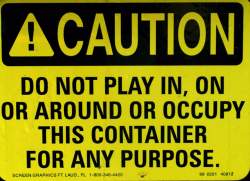Caution: Giving Medications to Children
Everyone should know that they need to be especially cautious when giving medication to children. But what special precautions should we take?
 |
I appreciated the reminders from ParentCenter last month entitled Seven medicines you shouldn’t give your child. There are some excellent reminders there.
Though the authors don’t give hard and fast rules (there are always exceptions), they advise against giving things like aspirin, over-the-counter cough and cold medicines (for children under 6), and anti-nausea medications.
The article also reminds us to check with a doctor before giving herbal remedies (some parents assume that these are safer than medications, which is not always the case).
There are a couple other common problems when it comes to headache and migraine in particular. First, giving too much acetaminophen/paracetamol is a common problem, because often times medications contain these ingredients and parent unknowingly give a double dose.
Second, giving "adult" medications. Some well-meaning parents see their children suffering something they’re well familiar with, and they’re tempted to try their meds for their kids. But many headache or migraine meds have not been properly tested for children, and can be dangerous. Some may be used for children at a different dose, but it’s important to do this under the care of a doctor.
There are more and more treatments specifically used for children with headache and/or migraine. For example, biofeedback and relaxation techniques have helped many children and teens. Some anti-nausea medication may be helpful, and even a preventative for migraine such as an anticonvulsant.
There are options out there – just remember to proceed with an extra measure of caution when trying to help a child.

3 January 2013 @ 5:18 am
What is missing in modern medicine is adequate treatment options for children with chronic pain, including migraine. There is no sense of urgency in resolving a child’s chronic pain, as if hanging our hopes on the possibility of “outgrowing” debilitating, 24/7 pain is an acceptable solution. It took nearly two years to discover that our daughter didn’t have to live in a dark room – there was a surgical option. Nerve decompression surgery relieved her pain and gave her back her life. No thanks to the specialists who said “there’s nothing left for you but psychiatry.” Shameful.